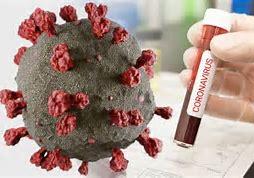Immunity or Resistance ?

Basically we don't know yet whether or not infection with Covid-19 provides us with a resistance or an immunity to re-infection. It appears from the limited testing done so far that only a short-lived relatively weak resistance is obtained from infection; a resistance that is rather like the resistance obtained from catching the flu. First, scientists discovered patients who had recovered from infection with Covid-19, but mysteriously didn’t have any antibodies against it. Next it emerged that this might be the case for a significant number of people. Then came the finding that many of those who do develop antibodies seem to lose them again after just a few months.
This means that once infected with the coronavirus, after you recover, you can probably become infected again, or re-infected. This makes it even more critical that we SLOW the spread of the coronavirus, STOP the spread of the coronavirus, and try to SLAY (Eradicate) the virus completely, until such time that we have found an effective vaccine, or developed another way to gain a real immunity to the coronavirus. SSS - Slow, Stop & Slay!
In more scientific terms:
Antibody (Ab) responses to SARS-CoV-2 can be detected in most infected individuals 10-15 days following the onset of COVID-19 symptoms. However, due to the recent emergence of this virus in the human population it is not yet known how long these Ab responses will be maintained or whether they will provide protection from re-infection.
Studies show that a transient (temporary) neutralizing antibody response (nAb) is a feature shared by both a SARS-CoV-2 infection that causes low disease severity and the circulating seasonal coronaviruses that are associated with common colds. Stronger resistance is usually obtained from having a more severe form of Covid-19 (SARS-CoV-2), and lower levels of resistance are usually obtained from suffering milder forms of infection.
The study [Longitudinal evaluation and decline of antibody responses in SARS-CoV-2 infection]
"Using sequential serum samples collected up to 94 days post onset of symptoms (POS) from 65 RT-qPCR confirmed SARS-CoV-2-infected individuals, we show seroconversion in >95% of cases and neutralizing antibody (nAb) responses when sampled beyond 8 days POS. We demonstrate that the magnitude of the nAb response is dependent upon the disease severity, but this does not affect the kinetics of the nAb response. Declining nAb titres were observed during the follow up period. Whilst some individuals with high peak ID50 (>10,000) maintained titres >1,000 at >60 days POS, some with lower peak ID50 had titres approaching baseline within the follow up period."
